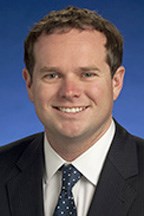VOL. 38 | NO. 9 | Friday, February 28, 2014
Proposal would silence public school lobbyists
With hundreds of thousands of dollars flooding in from out-of-state education interests to usher in vouchers and charter schools, some Tennessee school boards have hired contract lobbyists or joined associations that lobby on their behalf.
For these school boards and the systems they represent, it’s ideal to have someone on their side at the State Capitol. They can’t compete financially with groups such as StudentsFirst, a pro-charter organization based in Sacramento, Calif., that funnels money into Tennessee.
The head of the organization is Michelle Rhee, the former school chancellor for Washington, D.C. schools and ex-wife of Tennessee’s Commissioner of Education, Kevin Huffman.
StudentsFirst has moved its operation into Tennessee and has hired a small staff. During the last election season, StudentsFirst donated more than $100,000 to re-elect Rep. John DeBerry (D-Memphis), a conservative Democrat who supports the kind of educational reforms that StudentsFirst proposes. He faced a liberal Democrat in the primary, and StudentsFirst wanted to keep him as a key ally in the state house.
It was even more important to the association to keep one of the few Democrats who votes for school reform in office.
In 2012, StudentsFirst spent two million dollars to support over 100 candidates nationwide, a majority of those Republicans. In Tennessee, it keeps eight registered lobbyists at the General Assembly.
Another group, Tennessee Federation for Children, a pro-voucher group headed up by venture capitalist Townes Duncan, has five registered lobbyists. In 2013, that group spent more than $100,000 on contributions to state legislators, mostly Republicans, and in the same year spent $150,000 to $250,000 on lobbyists to help push for a voucher bill, which ultimately failed.
School systems can’t spend that kind of money to have a voice in the legislature, and so many school boards have joined the Tennessee School Board Association to get some help.
A small part of the dues provide for one lobbyist to represent the association. Some school districts also pay for contract lobbyists. Specifically, Williamson County Schools hired two lobbyists last year.
But all that could change.
A bill introduced by Rep. Jeremy Durham (R-Franklin) and Sen. Mike Bell (R-Riceville) would allow each county legislative body to alter or revise, specifically, the school board’s lobbying expenses.

Durham
Right now, county legislative bodies can accept the whole budget or reject it. The body can’t accept the budget while making specific changes.
Durham says money being spent on lobbying efforts should be spent inside the classrooms.
“This legislation would give county commissions unprecedented authority over school board budgets,” explains Andy Spears, a local education consultant. “In districts that hire in-house lobbyists, the commission would theoretically have staffing authority over that position.”
Shouldn’t an elected board decide what they want to do with its allotted money? What’s behind the bill?

Bell
Many school boards and superintendents are upset with the General Assembly and the State Department of Education. Last year, almost half of all the superintendents in Tennessee signed a petition stating that the DOE had no interest in working with local school systems.
“During the last year, the signees have developed a belief that the office of the Commissioner of Education in this administration has no interest in a dialogue with those of us providing leadership for school systems,” the petition states.
“We have begun to feel that the commissioner of the Tennessee Department of Education considers schoolteachers, principals and superintendents impediments to school improvement rather than partners.”
Is the Durham-Bell bill a way to silence the petitioners?
The bill would hit umbrella organizations like the Tennessee School Board Association, as well.
“The legislation could potentially affect membership within TSBA in that it allows funding bodies to amend or delete any and all dues to associations that lobby,” says Lee Harrell, director of government and labor relations for the association.
“This bill would allow one elected body to determine whether or not another elected body has representation on Capitol Hill or membership in an association. Local boards are elected by the people and are held directly accountable for all of the items in their budgets as well as the performance of the school system.”
The four biggest school districts, Shelby County Schools, Metro Nashville Public Schools, Knox County Schools, and Hamilton County Schools, are part of the Coalition of Large School Systems (CLASS), which employs two registered lobbyists. The organization is fighting the Durham-Bell bill, as well. Like the TSBA, a county or Metro legislative body could take away the dues that these school systems pay to the coalition.
“Lobbying for local school needs at the state level is a necessary part of our district’s work,” says Amy Frogge, a member of the Metro Nashville Board of Education, which is part of CLASS.
“Those of us who serve on school boards do so on a part-time basis, and without help from lobbyists, we could not possibly stay abreast of the nearly 500 bills currently pending on the Hill,” she adds.
“Without lobbyists, who help us share district concerns and needs with legislators, local school districts would be effectively silenced, while those with profit motives in education would have free reign at the legislature.”
While I would hope that county bodies would not specifically take away money from schools, we have seen far too often how city and school officials can see things differently.
If people believe that money should not be spent on lobby expenses, community members can express their views during school board meetings. They can also vote for different members in the next election.
The message this bill sends is that it’s OK for outside groups to spend hundreds of thousands of dollars to say how bad the public education is in Tennessee, but it’s not OK to allow local school systems to have a voice in fighting back.
As Harrell points out, the school boards are elected by the people. We shouldn’t let one elected board start to change what another board has done. We also shouldn’t allow outside groups with a lot of money to dictate our education system.
Let’s keep the voice of school boards alive.